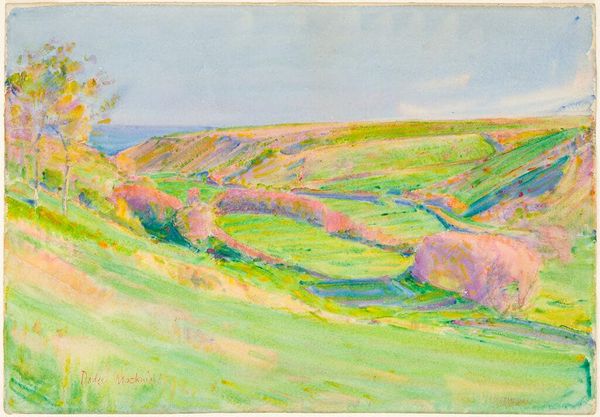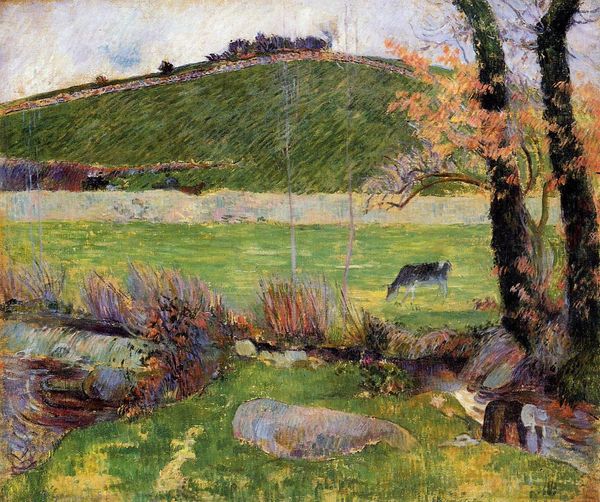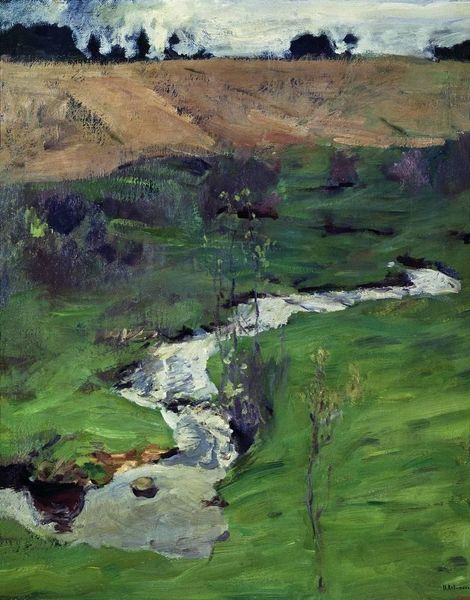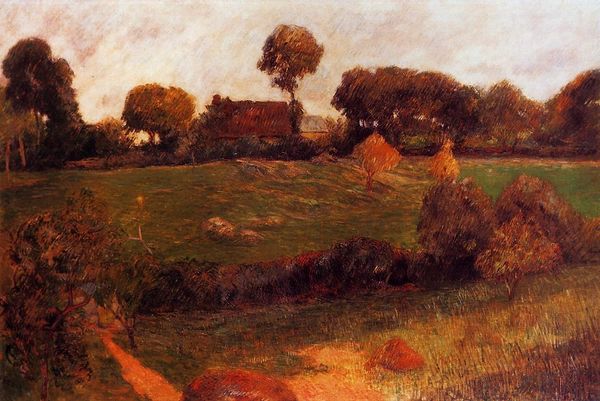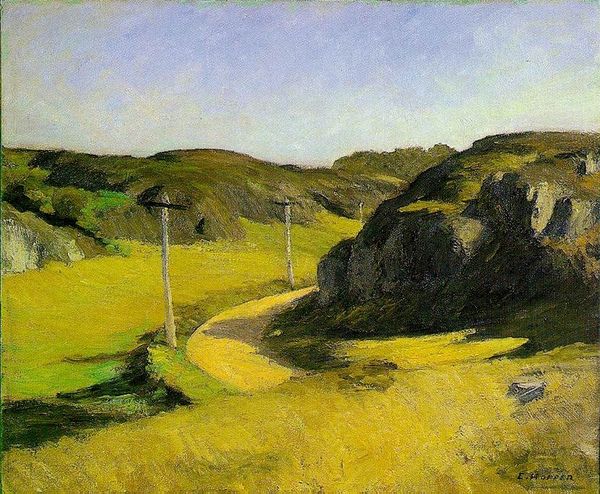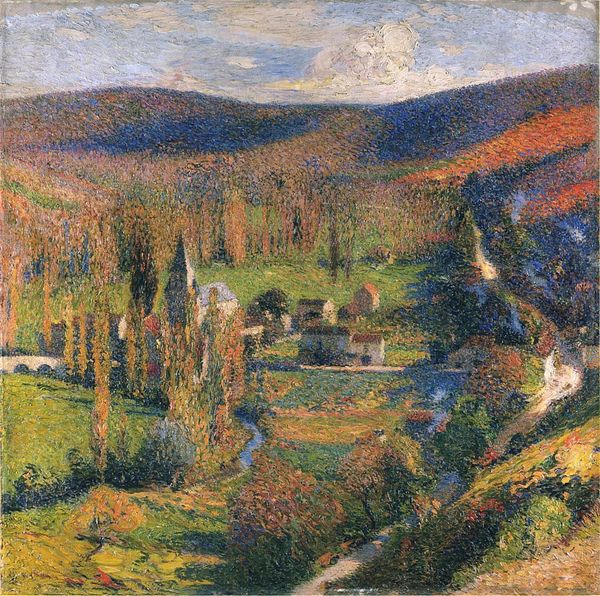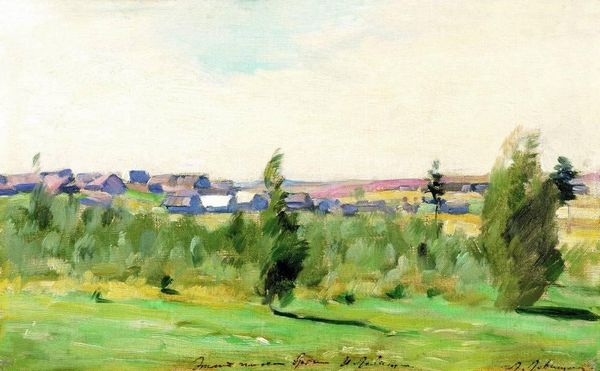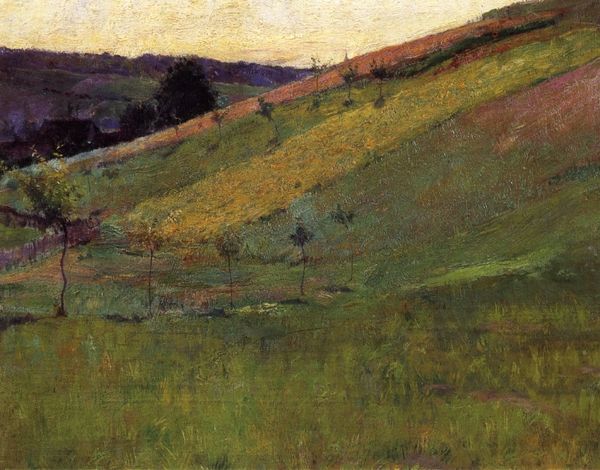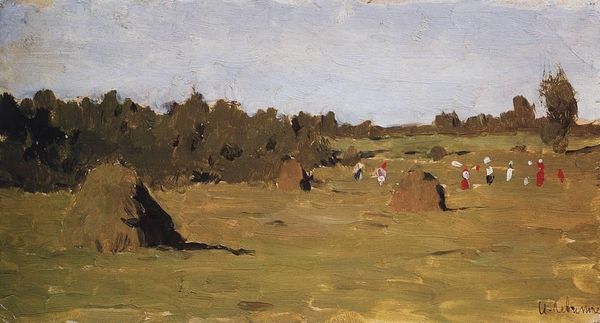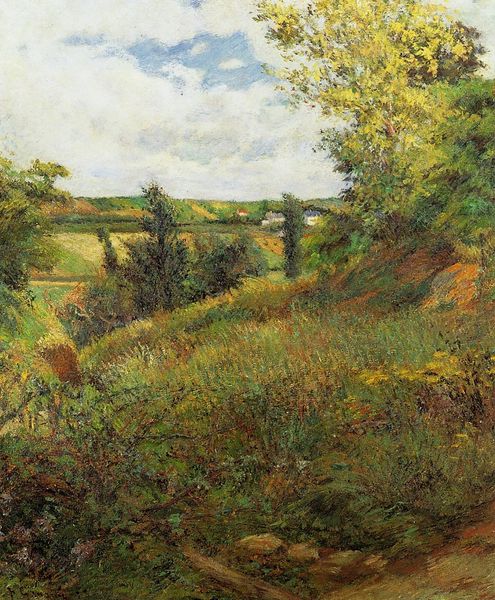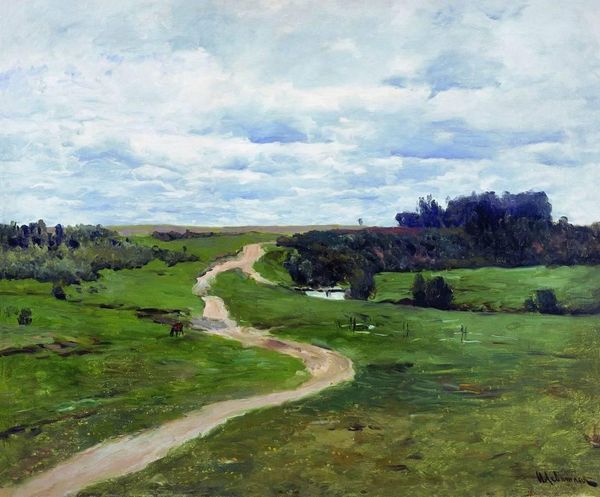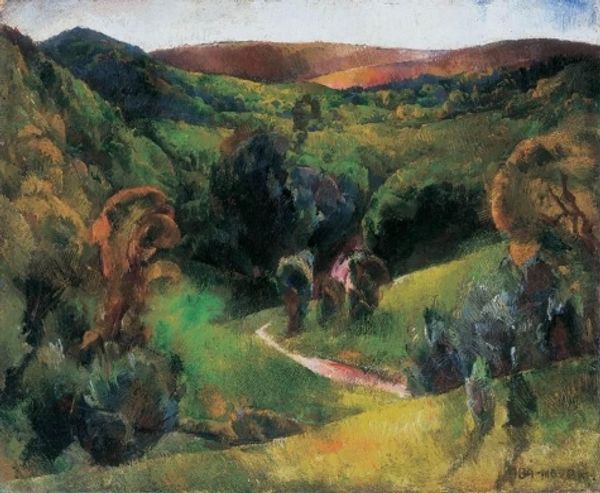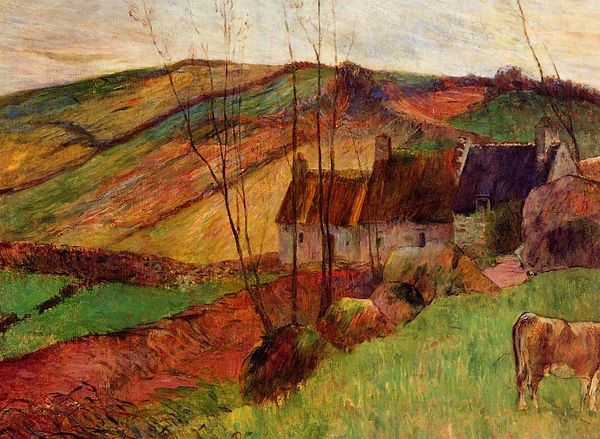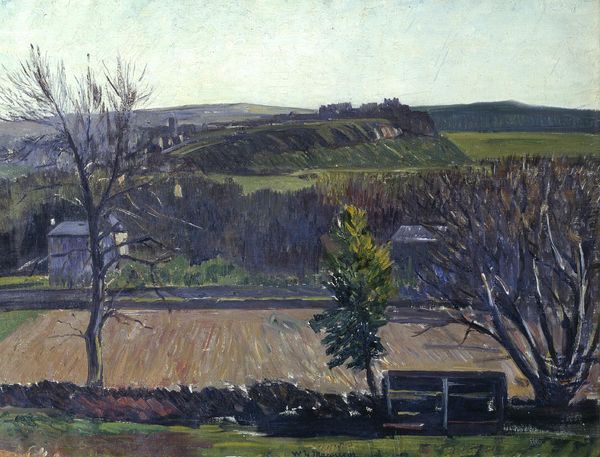
painting, plein-air, oil-paint
#
painting
#
impressionism
#
plein-air
#
oil-paint
#
landscape
#
impressionist landscape
#
oil painting
#
romanticism
#
genre-painting
Copyright: Public domain
Editor: Here we have Ferdynand Ruszczyc’s *Pejzaz pagorkowaty*, an oil painting of a hilly landscape. There's a lone figure in the field, and the whole scene feels quite pastoral. What do you see in this piece? Curator: I see a longing for connection with the land, and a simultaneous recognition of human impact on the environment. This painting can be viewed as an intersection of romanticism and the rise of industrialism and nationalism during that period. Notice how the lone figure, perhaps a shepherdess, is dwarfed by the vastness of the landscape. But consider the carefully cultivated fields – evidence of human intervention. What does this tension suggest to you? Editor: It suggests a kind of quiet struggle… between humans and nature? Curator: Exactly. And Ruszczyc, positioned as a Polish artist creating landscape paintings, we can view them as metaphors for cultural identity during a period of political upheaval and national aspirations. These idyllic settings, these 'genre paintings', become sites for negotiation with Polish cultural identity. Do you see any colours that stand out to you? Editor: The bright red worn by the figure really pops, contrasting with the greens. Curator: Yes, consider the significance of colour. Red is often associated with vitality and passion. In this context, could it also symbolize resilience, a persistent connection to the land in the face of societal change? How might a contemporary artist represent these tensions between identity and land? Editor: That’s a lot to consider! It gives the landscape genre a whole new layer of meaning. Curator: Indeed. Ruszczyc uses the genre conventions as platforms for exploring political identities and the cultural context. What initially appeared as a calm countryside transforms into commentary on landscape's effect on the lives of women, the development of communities and nations. Editor: Thanks! I’ll never look at a landscape the same way again.
Comments
No comments
Be the first to comment and join the conversation on the ultimate creative platform.
